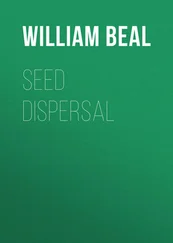I STOOD IN THE KITCHEN DOORWAY, the drawer in my hand, watching her crank the handle of a pasta-making machine. She hadn’t heard me come into the kitchen. Whatever contrast there was between the two of us, we both liked to cook. There she was, making fresh linguine noodles for her supper, which she would eat alone.
She was a strange woman, with her outdated clothing-which I had assumed was a mourning outfit but now wasn’t so sure about-her formal speaking style, her old-fashioned manners which didn’t quite succeed in glossing over a stern, unyielding personality. She was lost in concentration, humming a sad tune I didn’t recognize.
I cleared my throat, startling her.
“Sorry. I’m just going to reset this drawer and then head off home.”
She eyed the drawer, then looked at me.
“It sticks,” I explained. “I can fix it in no time.”
Her stare didn’t waver.
“It’s what I do,” I added lamely.
Brushing flour from her hands, she said, “That’s most kind of you, Mr. Havelock. Perhaps you’d care for a beverage before you leave.”
I didn’t, but it would have been rude to refuse. Besides, the thought of her drudging away at her pasta machine, alone in a huge house, got to me.
“That would be great,” I replied. “I’ll just slop a little glue on this. Won’t take ten minutes.”
An almost-smile moved those strange red lips. “Splendid. What would you like to drink?”
“A cappuccino would be good.”
She frowned as if I had tracked cow flop across her kitchen floor. “In civilized countries, cappuccino is never served after twelve o’clock.”
Well, pardon me, I thought. What a boor you must think me. Instead I said, “One of your delicious macchiatos?”
“Very well.”
When I returned from the shop, the sideboard had been cleared, the pasta hung on a drying rack, and the green light glowed on the espresso machine. Mrs. Stoppini drew a tiny cup of coffee, added a drop of frothed milk, and placed it on the table in front of me along with a half-dozen squares of dark chocolate on a china plate.
She sat down with a glass of red wine.
“Chianti?” I asked.
“Indeed.”
“I’m hoping Raphaella will be able to come tomorrow,” I told her.
“I shall look forward to it.”
“Um, Mrs. Stoppini, I want to ask you something.”
She put down her glass, her thick dark eyebrows lifting slightly. She fixed her fish-eyes on me expectantly, her bizarrely made-up lips in a straight line.
“I… I hope you won’t think I’m prying, or that I’m overstepping the terms of my contract…”
The eyebrows dropped into a frown.
“I’m aware that you made a big deal… er, point about confidentiality-”
“Excuse my interruption, Mr. Havelock, but what-?”
“But you stressed that you wanted a complete inventory.”
“Do feel free to speak, Mr. Havelock,” she said impatiently.
“Well, am I right in assuming the inventory is to include the little cupboard behind the secret door?”
“The… I’m afraid you’ve lost me.”
“Come with me,” I said.
Before she could object, I left the kitchen. When I pulled back the library doors she was right behind me. She stood rooted in the hallway, watching me like a puzzled crow, as if I was a demented stranger teetering on the edge of a fullblown fit. I got the keys from the escritoire, crossed the room, and stopped by the alcove.
“You can’t see it from there,” I said. “You’ll have to come in.”
“Very well. If you insist.”
She drew herself up and stepped in, like a non-swimmer testing the water.
“Farther,” I advised.
Mrs. Stoppini advanced stiffly, craning her neck.
I went through the elaborate process of releasing the lock. “Now watch,” I said, a little dramatically.
The section of bookcase swung smoothly open. Behind me I heard her catch her breath. I rolled up the secret inner door. I hadn’t thought her eyes could get any bigger or protrude any farther, but they did.
“Good gracious!” she exclaimed.
“Take a look at what I found in here,” I said, holding back my excitement.
Mrs. Stoppini had gone pale. She looked like she was about to dash off. “I think not, just at the moment,” she said uneasily. “Please add whatever it is to the inventory.”
“Well, the thing is, it looks like pretty valuable stuff. Maybe you should hang on to this.”
I tried to hand her the key. She shrank back, eyes bulging, as if the key carried a curse.
“No, no, Mr. Havelock, if you please!”
She fled the room as if it was on fire.
“HMM. F ANATICS , EH? Catchy title. What’s the book about?”
“I don’t know. Someone with too much zeal and too little common sense, I suppose.”
“You didn’t read any of it.”
“No,” I replied sheepishly.
Only a few hours had passed since I discovered Professor Corbizzi’s secret hoard of mysteries. Raphaella and I were lounging in the living room of my house, lazy and sluggish after a big dinner with my parents, who had gone out to the bridge club.
“And you only took, quote, ‘a quick gander’ at that thing under the glass dome on the gold cross, and you can’t say what it was.”
“Right.”
“And the title of the big old leather book published around five hundred years ago was in a language kind of like English but not English.”
“Right again.”
“Which was sort of like the language on the medal, but you’re not sure.”
“Go to the head of the class.”
“And the word ‘Hieronymvs’ appears on both the book and the medal, but you don’t know what it means.”
I nodded.
“Remind me never to hire you as a detective,” Raphaella said, lying back lazily with her head propped on the arm of the sofa and her feet in my lap.
“I detected all kinds of stuff. I detected so many things that I almost fainted from detection exhaustion.”
She smirked. “Poor boy. But you didn’t delve , did you?”
“I already told you. The place gives me the shivers. And there’s more.”
Raphaella sat up. “I knew it.”
Beginning slowly so as not to leave out any details-I couldn’t forget them even if I wanted to-I told her the dream I had had during the thunderstorm at the Corbizzi place. The dark chamber, the black rat, the terrifying silent men at the table, the horrific torture of the man whose face I couldn’t make out in the gloom, his heart-ripping shrieks. Her face blanched when I described how they let him drop from the ceiling and how his shoulders made that sickening crack when they were dislocated.
Raphaella had an interesting theory about dreams. She believed that most were a sort of inner conversation in sounds and images and actions. You were telling yourself something, one part of the mind explaining itself to another, without words. If you paid attention to your dream, analyzed it without expecting it to be logical or “realistic,” you could eventually understand what it was about.
Both of us also believed that some dreams weren’t like these inner conversations. They originated outside the dreamer and came from another realm, as if two different realities intersected momentarily, like the past briefly overlapping the present. When Raphaella had one of her premonitions, she believed they came from outside her in the same way. We knew without saying anything that the dream I had described was this second kind.
“Wow,” she said when I had finished my story. “Hmm.”
“I know what you’re thinking,” I said.
“The bedroom was-”
Читать дальше












